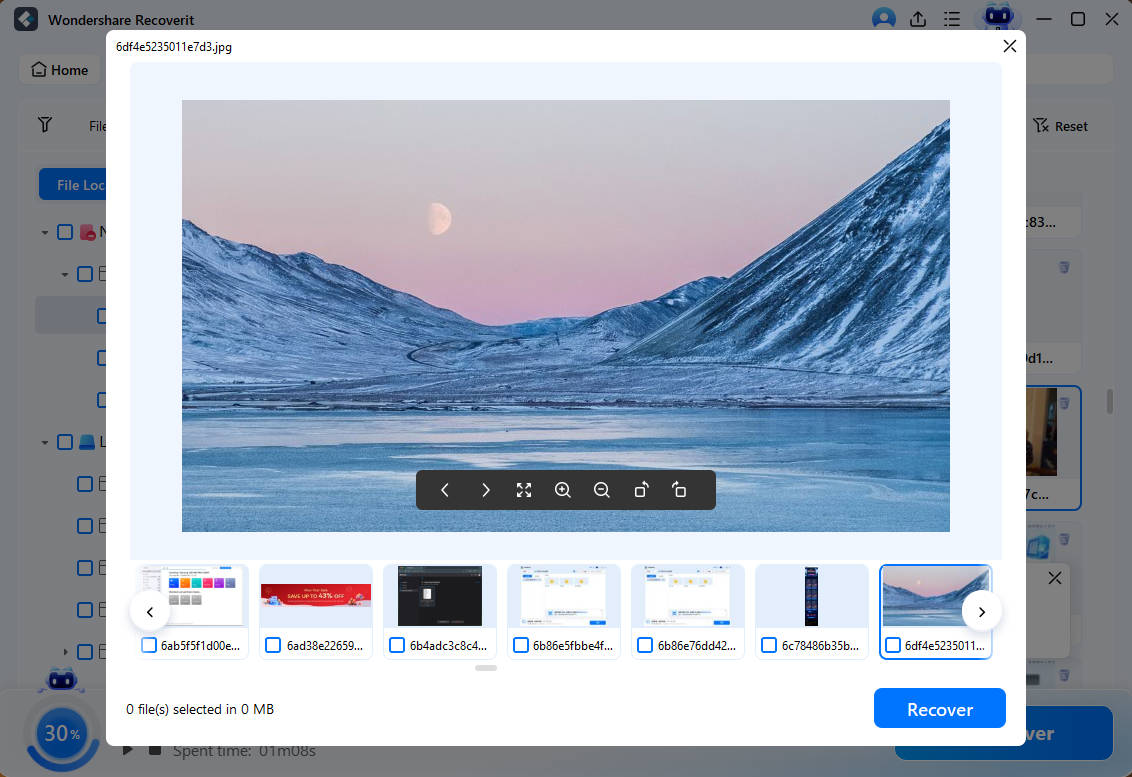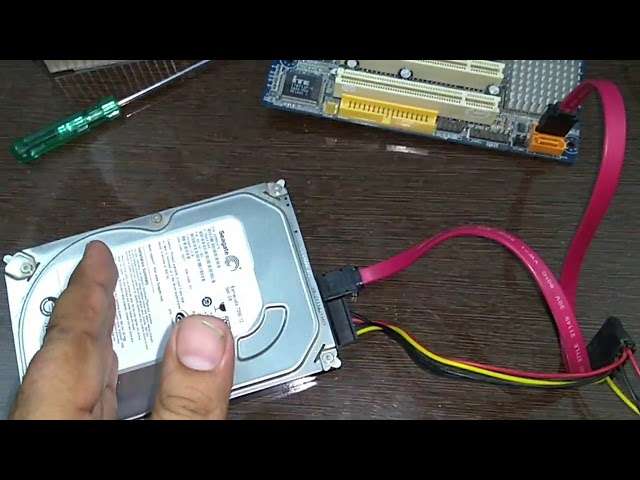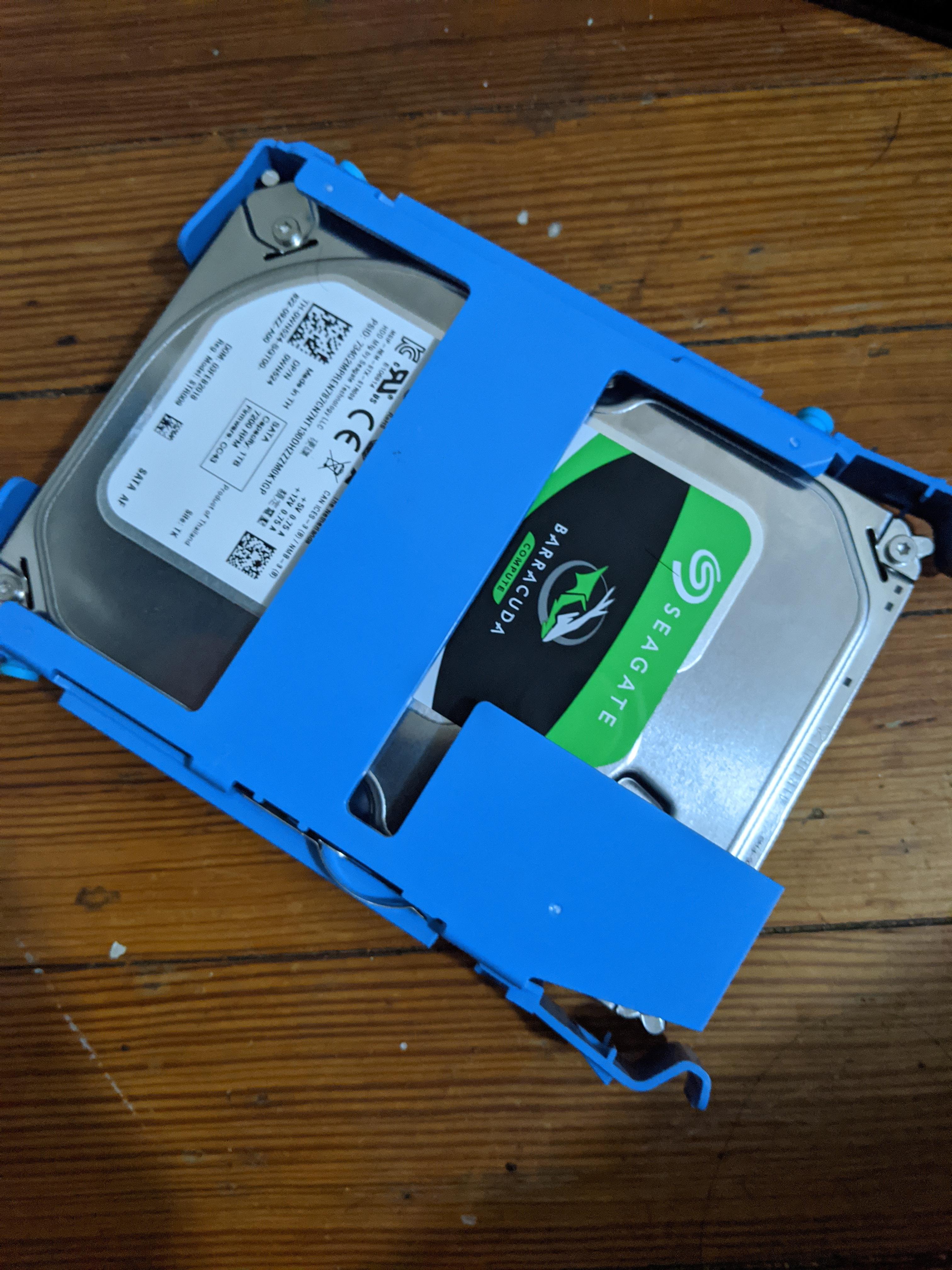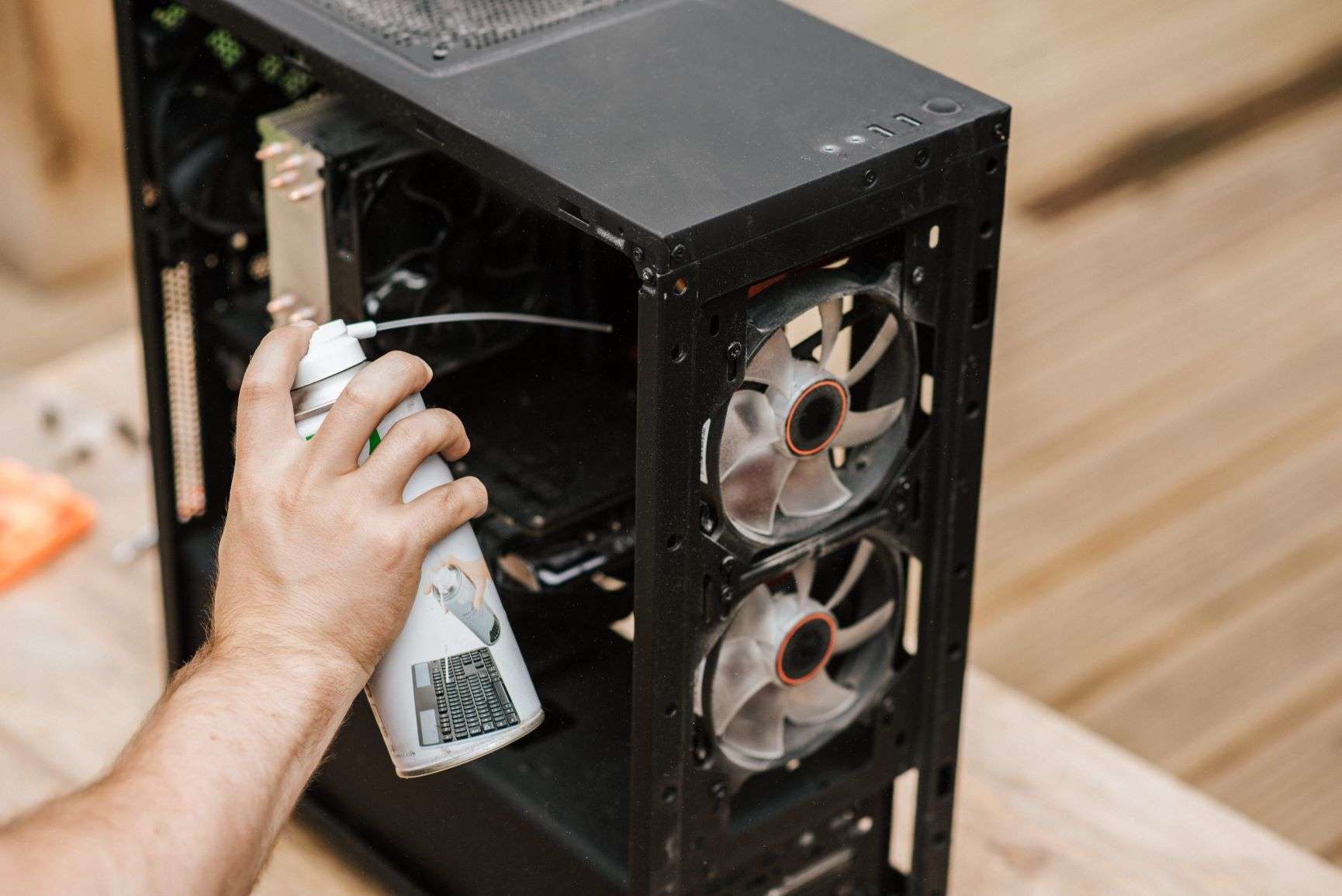This message of panic is something computer repair experts hear very often. Think about starting your laptop and hearing a strange noise - a quiet but constant clicking from inside. Your heart starts beating fast as you remember that all your important pictures, work papers, and personal files are on that hard drive. The clicking sound is like a timer on a bomb, telling you that your important data could be gone at any time.
Don't be scared - many people have this problem with clicking hard drive or a beeping HDD. It's a big worry, but there's usually still a chance. With the right knowledge and tools, you can often save your data and maybe even fix the issue. In this guide on clicking hard drive recovery, we'll show you everything you need to know about handling a hard drive that makes a clicking noise.
In this article
Common Symptoms of a Clicking Hard Drive
When your hard drive starts to fail, it often gives warning signs. Recognizing these symptoms early can be crucial in salvaging your data.
Here are some common symptoms of a clicking hard drive:
- Sound: If you hear loud, metal-on-metal clicks that you can easily notice, it's concerning.
- Startup issues: If your computer won't start or makes clicking noises when turning on, your hard drive may be failing.
- Rapid clicking: Many clicks happening quickly is a bad sign.
- Slow file transfers: If copying files suddenly becomes very slow, your hard drive might be failing.
- Long startup times: If your computer takes much longer than usual to turn on, it could mean hard drive problems.
If you're experiencing any of these symptoms, it's crucial to act quickly to prevent further data loss and increase your chances of successful recovery.
Causes of Beeping Hard Drive
Understanding why your hard drive is making unusual noises can help you determine the best course of action. Here are some common causes of a clicking or beeping hard drive:
- 🤖 Physical damage: Drops, bumps, or other physical shocks can damage internal components, causing the hard drive to make unusual noises.
- 💻 Mechanical failure: The most common cause of a clicking hard drive is mechanical failure. This can occur when the read/write heads malfunction or when there's damage to the platters that store your data.
- 🔋 Power issues: Insufficient power supply can cause the hard drive's motor to struggle, resulting in clicking or beeping sounds.
- 📎 Firmware corruption: In some cases, corrupted firmware can cause the hard drive to malfunction, leading to unusual noises.
- 🥵 Overheating: Excessive heat can cause components to expand and malfunction, potentially resulting in clicking or beeping sounds.
- 🔧 Manufacturing defects: In rare cases, factory defects can lead to premature failure and strange noises.
Identifying the cause can help you decide whether to attempt DIY fixes or seek professional help for your ticking HDD.
DIY Methods to Fix Clicking Hard Drive
Before attempting any DIY methods, it's crucial to understand that these techniques carry risks and may potentially cause further damage if not done correctly.
Always prioritize data recovery over fixing the drive itself. Here are some methods you can try:
Method 1: Recover Data When Clicking Hard Drive Is Still Functioning - Wondershare Recoverit
When facing a clicking hard drive, your top priority should be rescuing your data and minimizing further damage. This is where Wondershare Recoverit comes in handy.
Recoverit's efficient scanning and recovery process allows you to act fast, potentially saving data before the drive fails completely. With user-Friendly Interface, this recovery tool supports 1000+ file types, ensuring comprehensive data retrieval.
Here's how to recover data from clicking hard drive using Recoverit:
Step 1: Launch Recoverit and select the problematic drive for scanning.

Step 2: Start the scan and patiently wait for it to complete. You will see the scan results on the screen shortly.

Step 3: Use the preview feature to select the files you want to recover.

Step 4: Choose a safe location on a different drive to save the recovered files.
By using Recoverit, you're giving yourself the best chance of recovering data from your clicking hard drive before attempting any physical fixes that might risk further damage.
Remember, in these situations, your data is the most valuable asset, and Recoverit provides a safe, efficient way to protect it.
Method 2: Check the hard drive connection
Sometimes, a loose connection can cause a hard drive to make clicking or beeping noises. Here's how to check and fix the connection:
Step 1: Shut down your computer and unplug it from the power source.
Step 2: Open the computer case and locate the hard drive. Check both the power and data cables connected to the hard drive.

Step 3: Disconnect and reconnect both cables, ensuring they're firmly seated.
Step 4: If possible, try using different cables or ports to rule out cable issues. Close the case and restart your computer to see if the problem persists.
This simple fix can sometimes resolve issues with a clicking hard drive or beeping HDD.
Method 3: Place the hard drive upside down
This unconventional method can sometimes provide temporary relief for a clicking hard drive:
Step 1: Power down your computer and unplug it.
Step 2: Remove the hard drive from your computer. Place the hard drive upside down on a flat, clean surface.

Step 3: Reconnect the power and data cables. Power on your computer and quickly attempt to access your data.
This method may work by using gravity to temporarily realign misaligned components. However, it's important to note that this is a short-term solution and should only be used as a last resort to recover critical data.
Method 4: Freeze the hard drive
To cool down your hard drive, do these things:
Step 1: Open your computer or laptop and clean the dust off the fan.
Step 2: Clean the dust from the computer fan. Put another fan in your computer to help cool the drive. Don't use the computer and let the drive get cooler.

Step 3: When the hard drive starts working again, save your files or get your files from the hard drive right away. If the hard drive is very old, buy a new one and put it in place of the old one.
Last Resort: Find Professional Services for Ticking Hard Drive
If DIY methods fail to resolve the issue or recover your data, it's time to seek professional help. Data recovery specialists have the tools, expertise, and clean room facilities necessary to safely recover data from severely damaged hard drives.
When choosing a professional service for your clicking hard drive or ticking HDD, consider the following:
- Reputation: Look for companies with a proven track record of successful recoveries.
- No data, no fee policies: Some companies offer this guarantee, which can provide peace of mind.
- Turnaround time: If you need your data urgently, check the estimated recovery time.
- Cost: Get quotes from multiple providers, but be wary of unusually low prices that seem too good to be true.
Remember, professional data recovery can be expensive, but it may be your best chance of recovering irreplaceable data from a severely damaged hard drive making clicking noise. Some renowned professional data recovery services are TechChef, and DataCare Labs.
Clicking Hard Drive Recovery Tips: Dos and Don'ts
When dealing with a clicking hard drive or beeping HDD, keep these important dos and don'ts in mind:
Dos:
- Act quickly when you notice unusual noises or behavior from your hard drive.
- Back up your data regularly to prevent loss in case of drive failure.
- Use reliable data recovery software like Wondershare Recoverit for initial recovery attempts.
- Seek professional help if DIY methods fail or if you're uncomfortable attempting them.
- Keep your hard drive in a cool, dry place to prevent overheating.
- Perform regular maintenance and care on your hard drive. This includes running disk check utilities, defragmenting (for HDDs, not SSDs), updating drivers, and keeping the computer clean from dust.
- Ensure your hard drive has an adequate power supply. Insufficient power can cause clicking noises and other issues, so make sure your power supply unit is working correctly and providing enough power to all components.
Don'ts:
- Don't ignore warning signs like clicking or beeping noises from your hard drive.
- Avoid opening the hard drive unless you're in a professional clean room environment.
- Don't attempt to repair a physically damaged hard drive yourself.
- Avoid using the failing drive for everyday tasks once you've noticed issues.
- Don't fall for scams or unrealistic promises of data recovery.
Following these guidelines can help increase your chances of successful data recovery and prevent further damage to your clicking hard drive.
Conclusion
Dealing with a clicking hard drive or beeping HDD can be a stressful experience, but it's important to remember that all is not lost. By recognizing the symptoms early, understanding the potential causes, and taking appropriate action, you can often recover your valuable data and potentially even fix the issue.
Whether you choose to attempt DIY methods like using data recovery software, checking connections, or seeking professional help, the key is to act quickly and cautiously. Remember that your data is the most important asset, and preserving it should be your top priority.
Regular backups and proper maintenance can help prevent future hard drive issues, but if you do find yourself facing a ticking HDD, the information and methods outlined in this guide can serve as a valuable resource for recovery.
FAQ
Can a clicking hard drive be repaired?
In some cases, a clicking hard drive can be temporarily repaired to allow for data recovery. However, once a hard drive starts clicking, it's generally a sign of impending failure, and permanent repair is unlikely. It's best to focus on data recovery rather than long-term repair.How long can a hard drive last after it starts clicking?
The lifespan of a clicking hard drive is unpredictable. It could fail completely within minutes or continue functioning for weeks. To be safe, assume you have very little time and prioritize data recovery immediately.Is it safe to use software to recover data from a clicking hard drive?
Using software like Wondershare Recoverit to recover data from a clicking hard drive is generally safe and can be effective if the drive is still recognized by your computer. However, it's important to limit the use of the failing drive to prevent further damage.How much does professional clicking hard drive recovery cost?
The cost of professional data recovery for a clicking hard drive can vary widely, typically ranging from a few hundred to several thousand dollars. The exact price depends on the severity of the damage, the capacity of the drive, and the urgency of the recovery.



 ChatGPT
ChatGPT
 Perplexity
Perplexity
 Google AI Mode
Google AI Mode
 Grok
Grok






















